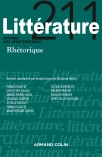
Romantisme n° 179 (1/2018)
Pour acheter ce numéro, contactez-nous
Recevez les numéros de l'année en cours et accédez à l'intégralité des articles en ligne.
Bien des personnages imaginés par Jean Lorrain (1855-1906) découvrent leur vérité profonde dans l’expression d’un élan sexuel que la morale bourgeoise réprouve : tentations adultères, homosexuelles, fétichistes, zoophiles, voire meurtrières. Plus qu’un catalogue des « perversions » fin-de-siècle, les récits mettent en scène cette incommodité d’être soi dans un monde théâtralisé où le port du masque semble obligatoire. Ce sont bien les identités genrées et les sexualités réglées qui se fracturent devant la réalité irréfragable et la force brute des désirs. Mais l’esprit individualiste et libertaire qui souffle sur ces pages et semble protester contre toute contrainte sociale estmodulé, voire inhibé par la peur qu’une jouissance inentravée ne désemprisonne un moi capricieux, malfaisant ou monstrueux. L’article se propose d’exposer cette tension non résolue, sous-jacente à certains récits fictionnels de Lorrain, entre besoin d’être fidèle à soi, refus des cadres institués du genre et difficulté de trouver un chemin existentiel humainement acceptable.
A number of the characters invented by Jean Lorrain (1855-1906) discover their authentic selves through the expression of a sexual attraction disapproved of by bourgeois mores: adulterous temptations, homosexual, fetishistic, zoophiliac, and murderous ones even. More than a catalogue of end-of-century “perversions”, his stories stage this difficulty in being oneself in a theatrical world where wearing a mask seems to be the norm. It is indeed gendered identities and regular sexualities that fracture in the face of the brute and irrefutable force of desire. But the individual and libertarian spirit blowing through these pages, seemingly refractory to any kind of social constraint, is modulated and even inhibited by the fear that uninhibited jouissance might give licence to a capricious, evil or monstrous self. This paper purports to expose this unresolved tension underlying a number f Lorrain’s fictions, a tension between the need to be loyal to oneself, the refusal of gendered institutional frameworks, and the difficulty in finding a humanly acceptable path through existence.

